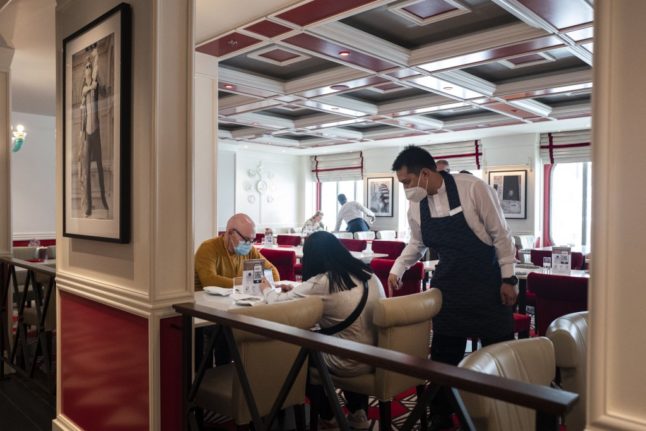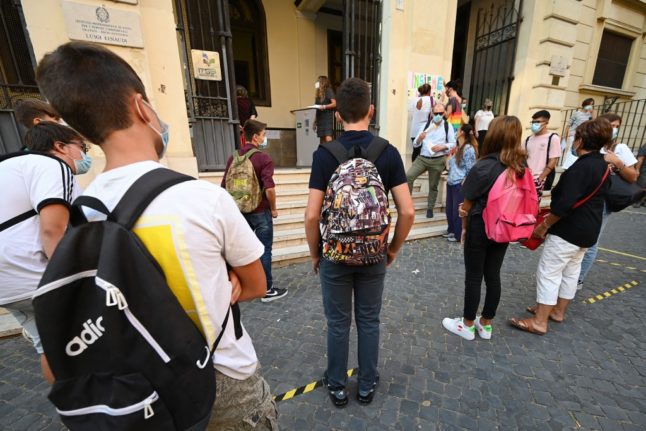As Italy prepares, in the words of Prime Minister Mario Draghi, to gradually “eliminate all the restrictions that have limited our behaviour”, the text of the government’s latest decree has now confirmed which rules will be eased as of April 1st.
TIMELINE: Where and when will Italy relax its Covid rules?
The Italian government published the long-awaited final text (see it here, in Italian) on Friday, more than a week after it announced the document’s approval.
Italian media reports based on a draft of the decree had stated that some rules would be lifted sooner for international tourists than for residents. But the publication of the decree confirmed that all of April’s rule changes will apply to residents and tourists alike.
Here are the rule changes you should know about if you’ll be travelling in Italy from April 1st:
Bars and restaurants
As of April 1st, proof of a negative Covid test result will be enough for entry to indoor bars and restaurants.
Since January, entry to many venues, including bars and restaurants, has been limited only to those who can show a valid ‘super’ green pass – which is issued based on proof of vaccination against or recovery from Covid-19, but not via testing.
The change in rules opens up these venues to people who have not been vaccinated against Covid-19 as long as they test negative.
Proof of a negative test result must be shown via a valid green pass base, or ‘basic’ green pass – the digital health certificate released after obtaining a test result from a certificated provider in Italy (such as a pharmacy or clinic).
READ ALSO: How tourists and visitors can get a coronavirus test in Italy
However, if you’re in Italy for a longer stay bear in mind that you will need to be tested every couple of days to retain access to a valid green pass.
Passes issued based on the results of PCR tests are valid for 72 hours (from the time of testing). For rapid tests, the validity period is 48 hours.
Hotels
From April 1st, visitors staying in hotels and B&Bs will also be able to access restaurants, bars and dining rooms located in their accommodation without any type of green pass.
Public transport
The health pass requirements for accessing long-distance public transport will also be downgraded, with only a basic green pass needed (rather than a ‘super’ green pass as is currently the case).
This applies to domestic flights, ferries, high-speed and intercity trains and coaches.
The ‘super’ green pass will remain mandatory on local or regional public transport (such as city buses and trams) until May 1st.
Until the same date, the use of Ffp2 face masks will remain mandatory on all means of public transportation; from trains and ferries to taxis and ski lifts.
Stadiums and theatres
The basic green pass (see above) will be adequate for “public participation in shows open to the public, as well as in sporting events and competitions which take place outdoors”, reads the decree text.
In other words, proof of a negative test result will now be accepted in order to access stadiums, concerts and open-air theatre performances or cinema screenings.
For indoor venues, the ‘super’ green pass remains a requirement (proof of vaccination against or recovery from Covid-19, but not via testing).
Green pass requirements are then expected to be eased further from May 1st.
Masks
Italy’s existing requirement to wear a mask in all indoor and some outdoor public areas will remain in place for everyone in the country until May 1st.
Until the same date, the use of Ffp2 face masks will remain mandatory on all means of transport (including on ski lifts and in taxis) and at cinemas, theatres and many other venues.
The plan for easing Italy’s domestic restrictions does not affect the rules for international arrivals, which were last updated at the beginning of March.
The Local will continue to publish further details about the new decree as they become available.
Find information about Italy’s Covid-19 rules on the Italian health ministry’s website (available in English).



 Please whitelist us to continue reading.
Please whitelist us to continue reading.
Member comments